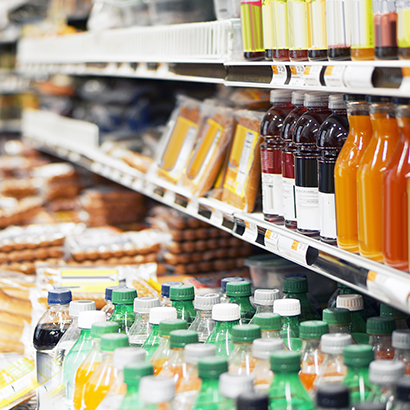
Food and Beverage
Food and beverage companies are continually in need of developing their intellectual property strategies and defending their intellectual property rights.
We work closely with our clients to identify and protect the integrity of their brands to ensure that they distinguish themselves from their competitors. Our Food and Beverage lawyers also help clients with regulatory matters.
We have handled an array of matters ranging from due diligence to business transactions. Our lawyers also offer a full-range of patent services and obtain patent protection for and manage an establishment of food and beverage patent portfolios in the United States, Europe, Asia, and Australia to achieve clients’ business objectives.
We are skilled in every aspect of advertising and intellectual property within the food industry, including:
- Branding, advertising review, and compliance
- False advertising and labeling litigation
- Procurement and management
- Litigation regarding patents, trademarks, trade secrets, and copyrights
- Food, Drugs, Medical Devices and Cosmetics (FDA)
- Due diligence, acquisition, and licensing
Our lawyers have decades of FDA experience. We effectively address the issues and problems that arise for growers, manufacturers, associations, cooperatives and technology providers. Our lawyers also provide crisis management in recall situations, as well as counsel on ingredient, labeling, and advertising matters. Additionally, we provide regulatory strategies for conventional food, functional food, dietary supplements, and medical food. Further, our lawyers help clients comply with dietary supplement GMPs, provide representation in enforcement proceedings, and provide a comprehensive range of other services for the food sector.
Thought Leadership
The year 2025 saw significant regulatory activity in the realm of digital assets. The US Congress and financial regulators took steps to create and implement a clear legal framework to facilitate financial transactions using digital assets, and they will continue to do so in 2026.
On 20 February 2026, the US Supreme Court issued its decision in Learning Resources, Inc. v. Trump, consolidated with Trump v. V.O.S. Selections, Inc., addressing whether the President has authority under the International Emergency Economic Powers Act to impose tariffs.
New York state and New York City continue to advance an extensive and evolving framework of workplace regulations.
In this article, Dr. Jan Boeing and Arnaud Dobelle outline the key milestones of the new regulatory framework, its interplay with financial sector rules such as DORA and PSD2, and what the upcoming Digital Omnibus proposal means for organisations deploying AI in Europe.

